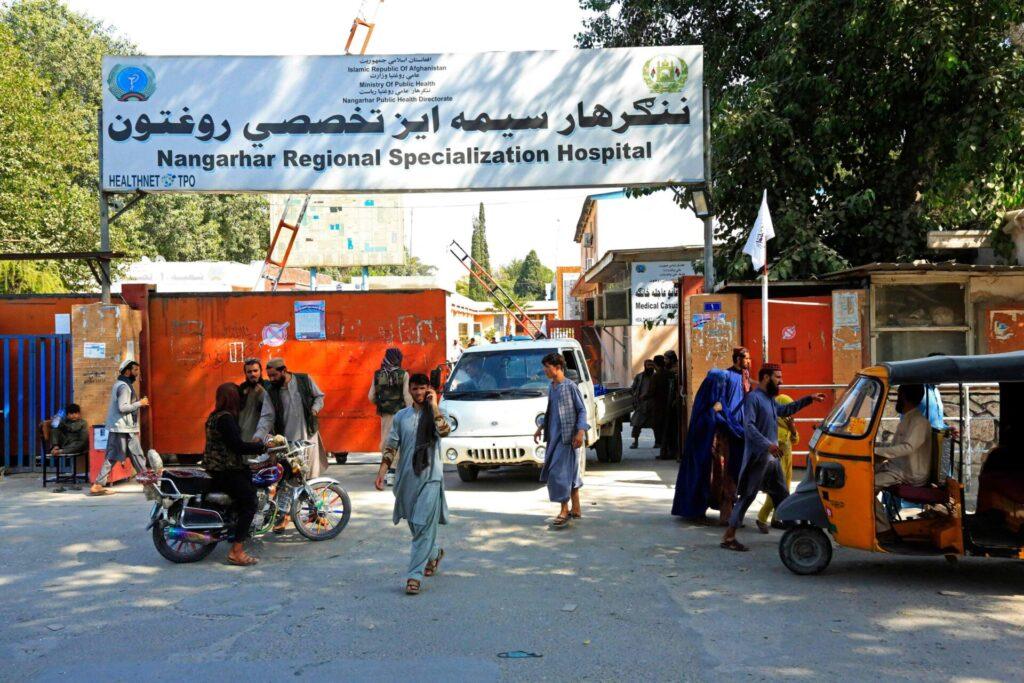Afghanistan is arguably one of the most complex nations in the world. With its tumultuous history, the country has had to deal with many different forces of change – both internal and external. From the Taliban to Al-Qaeda, the United States to China, and the regional and international organizations – the world has had to come to terms with Afghanistan’s policies and how they have impacted not just the nation, but the rest of the world as well. In this article, I will be discussing the world’s response to Afghanistan’s policies and the uncertain future that lies ahead.
Introduction
Afghanistan has been a major player in global politics since the Soviet invasion in the late 1970s. While the country has gone through many tumultuous changes since then, one thing remains true – the world has had to grapple with Afghanistan’s policies and their impact. Whether it be the US-Afghan relations, Pak-Afghan relations, the role of the Taliban, or the presence of China – all of these forces have had a direct impact on the nation, and in turn, on the rest of the world.
In this article, I will be discussing the current situation in Afghanistan, the political and economic impact of the nation’s policies, the global reactions to the policies, and what the future may hold. I will also be looking at the role of the US, China, Pakistan, and regional and international organizations in the context of Afghanistan’s policies.
In January 2022, the UN and its partners launched a funding appeal of more than $5 billion for Afghanistan in an attempt to shore up collapsing basic services. Following the U.S. withdrawal from Afghanistan, the security situation in the country has become a concern. In conclusion, the current situation in Afghanistan is marked by several humanitarian and economic challenges, along with security concerns.
Analyzing the Current Situation in Afghanistan
The current situation in Afghanistan is bleak. It is characterized by a rapidly deteriorating humanitarian crisis. The country is one of the biggest displacement crises in the world, with nearly 3.4 Million people displaced by conflict in 2021 while as per UN more than 9 million displaced people in the country. Afghanistan is becoming the world’s largest humanitarian crisis with needs surpassing those in Ethiopia, South Sudan, Syria, and Yemen. Nearly 23 million people face acute food insecurity.
In August 2021, the Taliban took control of Kabul and the country, resulting in one of the world’s worst humanitarian crises. The economy has no cash to pay salaries or buy food. Millions of Afghans have gone months without a steady income and rising prices for food and fuel are making it hard for the Afghan people in part due to US economic sanctions on the Taliban.
In January 2022, the UN and its partners launched a funding appeal of more than $5 billion for Afghanistan in an attempt to shore up collapsing basic services. Following the U.S. withdrawal from Afghanistan, the security situation in the country has become a concern. In conclusion, the current situation in Afghanistan is marked by several humanitarian and economic challenges, along with security concerns.
Afghanistan has had a long and difficult history with Pakistan, with the two nations often at odds over Afghanistan’s policies. In addition, the present policies of the Taliban-Led Afghan Government have further complicated matters.
The Political and Economic Impact of Afghanistan’s Policies
Afghanistan’s policies have had a major impact on the political and economic stability of the nation. The Afghan policies have been a major source of contention between Pakistan and other world powers including the USA. Afghanistan’s policies have also had a major impact on the nation’s economy, as foreign investment has been drastically reduced due to the political instability in the nation.
The presence of Al-Qaeda and TTP also had a major impact on the nation. The extremist groups have been responsible for numerous attacks and other acts of violence outside of Afghanistan making the nation even more unstable.
The US-Afghan relations have been fraught with tension since the US invasion of Afghanistan in 2001. The US has also imposed economic sanctions on Afghanistan which have further exacerbated its economic woes.
The US has also been heavily involved in the nation’s internal politics, with the US military and other government agencies actively trying to bring stability in Afghanistan. However, these efforts have largely been unsuccessful, as the nation remains in a state of political and economic turmoil.
The role of the regional and international organizations in Afghanistan has been largely limited. While the United Nations and other organizations have provided financial and political support to the nation, their presence has largely been limited to providing aid and assistance.
Looking Ahead to the Future of Afghanistan and the World’s Response
The future of Afghanistan is uncertain. The world’s response to Afghanistan’s policies has also been largely negative. Looking ahead, it is unclear what the future of Afghanistan will be. The nation is in a precarious state, with the US, India, China, Pakistan, and other regional and international organizations all vying for influence in the region. It is clear that there is an uncertain future ahead. The world’s response to the nation’s policies will be crucial in determining the Afghan future and the stability of the region.


